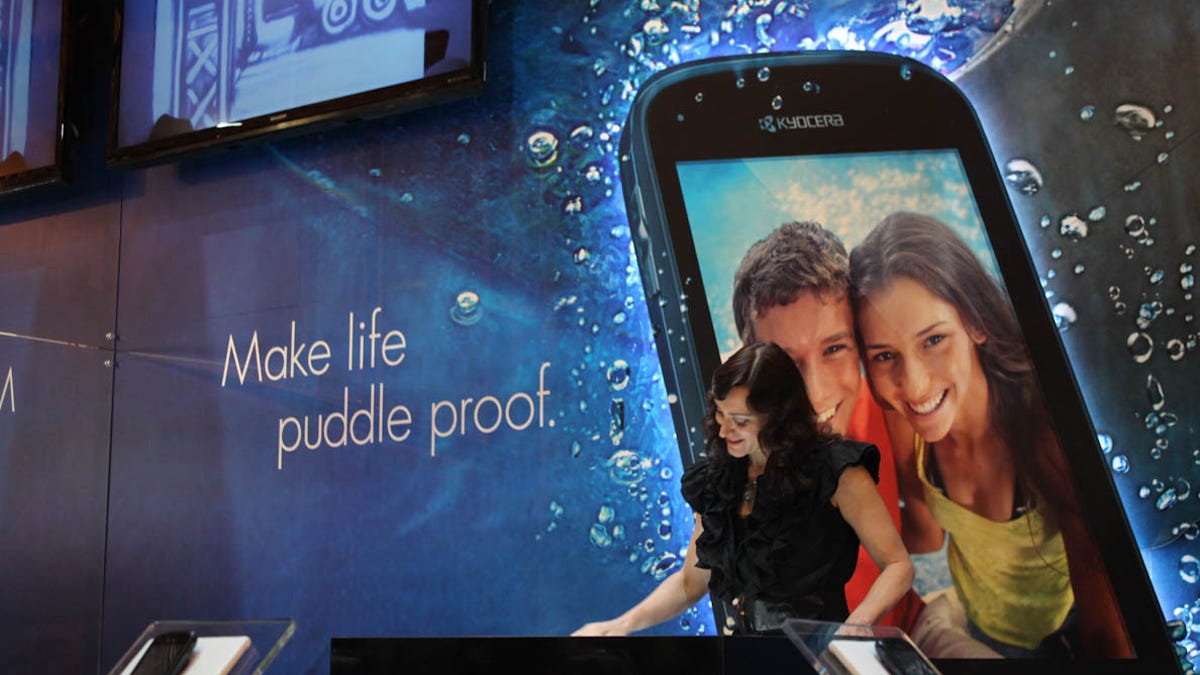CTIA 2012 sees Android Ice Cream Sandwich take root
Smartphone announcements were limited, but they signal the steady adoption of Android ICS.

NEW ORLEANS--We didn't come to CTIA expecting a flood of new handsets as in years past, but what we did see imparted a taste of things to come for carriers, phone makers, and the wireless industry as whole.
Big guns
The big guns were few. HTC was the most prolific, with the Droid Incredible 4G LTE as its top new device, plus a pair of older 4G WiMax phones repackaged with ICS for Sprint's no-contract carriers, Virgin Mobile and Boost Mobile. Both 4G and ICS are Virgin and Boost firsts.
HTC had one more surprise up its sleeve, a review unit of the HTC Evo 4G LTE, which had Brian Bennett, Kent German, and Lynn La up until all hours testing and rating.
Meanwhile, Samsung quietly showed off the Samsung Galaxy S III flagship ICS phone that it unveiled days before the show (it was our favorite phone there) and a new budget Windows Phone for AT&T from the confines of a small meeting room.
In Samsung World, one blank gray room at the far end of the convention center is nearly tantamount to a no-show. Keep in mind that this is a company that can easily spill out upward of six new smartphones and devices from enormous, multiplot booths and have more news to go around a few weeks later.
The smartphone industry's other movers and shakers were conspicuously absent. LG and Nokia planted their flags with large show-floor booths showing off recent handsets, but introduced no new phones, and Motorola was conspicuously absent.
Emerging players
The backed-off presence of the dominating set left more spotlight for lesser-known handset makers and for new entrants to gain some attention.
Kyocera spoke up with some innovative sound technology designed to improve audio on its handsets, and a new Ice Cream Sandwich handset of its own; and new players like Plum Mobile and Unnecto joined CTIA for the first time with a range of unfamiliar handsets they intend to sell globally.
Even Firefox-maker Mozilla also stepped in to introduce its concept for a mobile operating system.
Looking ahead
It's clear that carriers and handset makers used CTIA as a platform for discussing what's to come -- mainly Android Ice Cream Sandwich handsets and a sprinkling of Windows Phone devices for the manufacturers. For the carriers, it meant talking up new services and strategies.
AT&T made the biggest splash by introducing its move into home security, a completely new branch of its business. Meanwhile, Sprint detailed to media how it will move forward with its network consolidation. Verizon played the role of the strong, silent type, and T-Mobile's biggest advocate was a third-party report on data speeds.
As usual, the Big Four carrier CEOs talked spectrum in keynote speeches.
Dose of conscience
Seeing former U.S. President Bill Clinton close the show with an afternoon keynote speech was a highlight for many. America's 42nd chief drew standing ovations, and injected a sense of humility and conscience into the business proceedings with a call to action for innovative wireless and network solutions that safeguard both lives and the fragile, interconnected global economy.
Too much of a good thing?
While CTIA 2012 wasn't the blood-pumping, heart-pounding event it's been in past years, its ebb and flow gave us plenty to think about -- including the continued relevance of two CTIA shows a year.
This isn't the first time we've suggested that CTIA is losing its steam and would pack more punch as a single yearly (fall) show, like January's CES and February's Mobile World Congress.
For now, though, CNET's team walks away anticipating a busy summer filled with continued LTE and some mouthwatering choices of Android's Ice Cream Sandwich.
See all the <="" a="" rel="follow" target="_self">.

